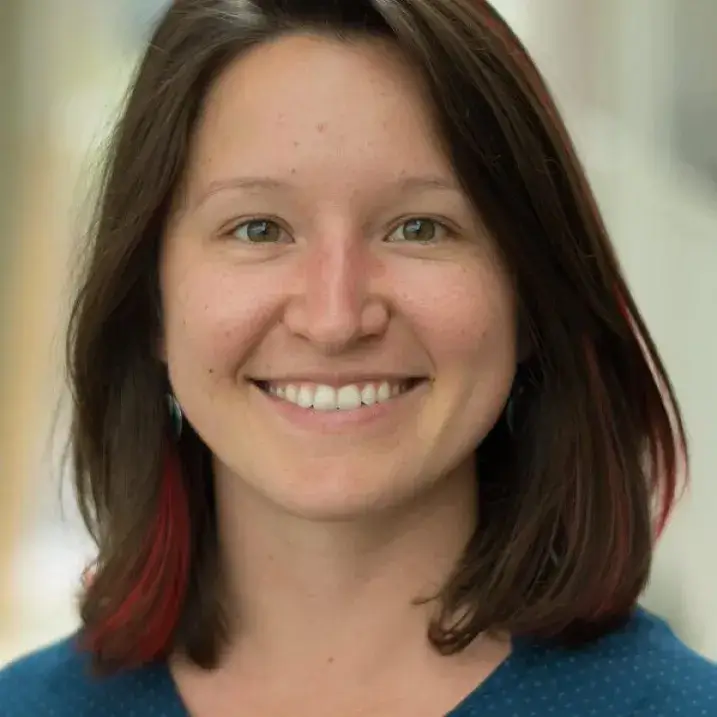danielle.brasino@med.uvm.edu
Stafford 208
95 Carrigan Drive
Burlington, VT 05405
United States
Pronouns
she/her
Affiliated Department(s)
UVM Cancer Center
Areas of expertise
- Organ-on-Chip Device Fabrication and Optimization
- Host-Microbe Interaction Modeling
- Gut Microbiome and Cancer Interactions
BIO
- B.S. Nutrition Science at University of Texas
- At UT, gained research experience in the lab of Stephen Hursting contributing to in vitro and in vivo studies of dietary impacts on breast and pancreatic cancer progression.
- Doctoral research in the lab of Christopher Bowman at the University of Colorado. Thesis research focused on the development of manipulable synthetic phospholipids using photo-and click-chemistries. These lipids were integrated into membranes as part of a multi-university, artificial cell project.
- Starting in 2018, postdoctoral research began at the new Cancer Early Detection Advanced Research (CEDAR) Center within the Knight Cancer Institute at Oregon Health and Science University in Portland, Oregon. Beyond contributions to multiple research projects as part of the center’s collaborative structure, her primary research centered around the development of a polycarbonate-based organ-on-chip platform to enable host-microbe interaction studies between the gut microbiome and distal disease.
- Joined the Department of Microbiology and Molecular Genetics in August 2024.
Publications
Bio
- B.S. Nutrition Science at University of Texas
- At UT, gained research experience in the lab of Stephen Hursting contributing to in vitro and in vivo studies of dietary impacts on breast and pancreatic cancer progression.
- Doctoral research in the lab of Christopher Bowman at the University of Colorado. Thesis research focused on the development of manipulable synthetic phospholipids using photo-and click-chemistries. These lipids were integrated into membranes as part of a multi-university, artificial cell project.
- Starting in 2018, postdoctoral research began at the new Cancer Early Detection Advanced Research (CEDAR) Center within the Knight Cancer Institute at Oregon Health and Science University in Portland, Oregon. Beyond contributions to multiple research projects as part of the center’s collaborative structure, her primary research centered around the development of a polycarbonate-based organ-on-chip platform to enable host-microbe interaction studies between the gut microbiome and distal disease.
- Joined the Department of Microbiology and Molecular Genetics in August 2024.
Publications
Lab Team
Jake Spiegler - Laboratory Technician, jake.spiegler@uvm.edu
Ethan Putnam - PhD Graduate Student
Alina Staten - Undergraduate Researcher
Ethan Putnam - PhD Graduate Student
Alina Staten - Undergraduate Researcher
